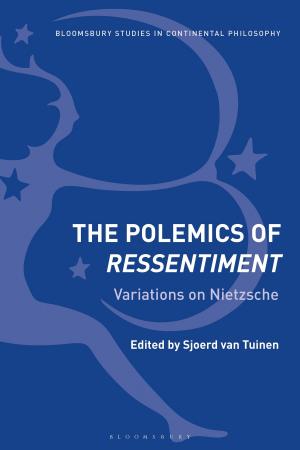A New Philosophy of Society
Assemblage Theory and Social Complexity
Nonfiction, Religion & Spirituality, Philosophy, Political| Author: | Professor Manuel DeLanda | ISBN: | 9781350096745 |
| Publisher: | Bloomsbury Publishing | Publication: | April 18, 2019 |
| Imprint: | Bloomsbury Academic | Language: | English |
| Author: | Professor Manuel DeLanda |
| ISBN: | 9781350096745 |
| Publisher: | Bloomsbury Publishing |
| Publication: | April 18, 2019 |
| Imprint: | Bloomsbury Academic |
| Language: | English |
In A New Philosophy of Society Manuel DeLanda offers a fascinating look at how the contemporary world is characterized by an extraordinary social complexity. Since most social entities, from small communities to
large nation-states would disappear altogether if our cognitive abilities ceased to exist, DeLanda proposes a
novel approach to social ontology that asserts the autonomy of social entities from the conceptions we have of them.
He argues that Gilles Deleuze's theory of assemblages provides a framework in which sociologists and geographers studying social networks and regions can properly locate their work and fully elucidate the connections between them. Indeed, assemblage theory, as DeLanda argues, can be used to model any community, from interpersonal networks and institutional organizations, to central governments, cities and nation states.
In A New Philosophy of Society Manuel DeLanda offers a fascinating look at how the contemporary world is characterized by an extraordinary social complexity. Since most social entities, from small communities to
large nation-states would disappear altogether if our cognitive abilities ceased to exist, DeLanda proposes a
novel approach to social ontology that asserts the autonomy of social entities from the conceptions we have of them.
He argues that Gilles Deleuze's theory of assemblages provides a framework in which sociologists and geographers studying social networks and regions can properly locate their work and fully elucidate the connections between them. Indeed, assemblage theory, as DeLanda argues, can be used to model any community, from interpersonal networks and institutional organizations, to central governments, cities and nation states.















